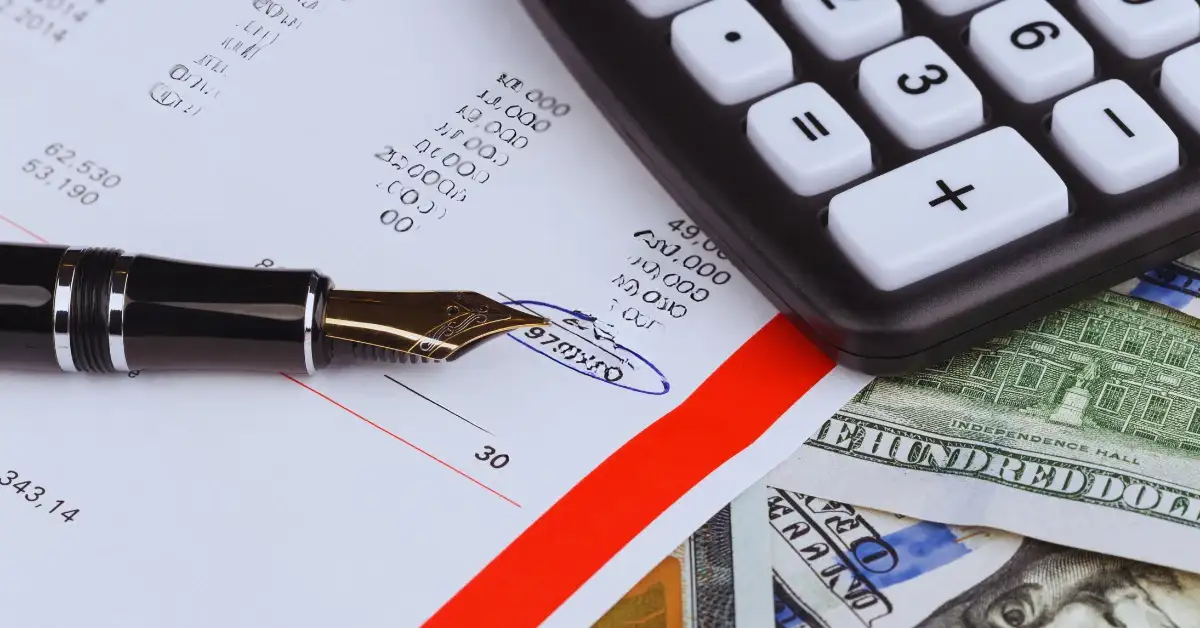Why Do Landlords Ask for Bank Statements? Rental Awareness
Landlords ask for bank statements to assess a tenant’s financial stability and ability to pay rent. Bank statements provide evidence of income, expenses, and potential financial issues. It also allows landlords to make informed decisions about renting their properties.
This information allows landlords to make an informed decision about renting their property and mitigating the risk of non-payment.
This article will cover the reasons landlords ask for bank statements, what they look for in a bank statement, and how tenants can prepare for this request.

Understanding The Importance Of Bank Statements For Landlords

What Are Bank Statements And How Do They Relate To Renting?
Bank statements are documents issued by financial institutions that show the transactions made through an account within a specific period.
For renters, bank statements are essential documents, as they help landlords verify the tenant’s financial health.
Bank statements disclose details are the account holder’s name, address, balance in the account, credit card debts, loan payments, and other financial obligations.
These help landlords determine whether the tenant is financially stable and able to pay rent on time.
Why Landlords Need To See Bank Statements From Potential Tenants?
Landlords ask for bank statements from potential tenants for many reasons, including verifying employment status, income, and expenses like rent, utilities, loans, and credit card payments.
Here are some other reasons that make bank statements crucial documents in the renting process:
Confirming identity
Bank statements contain the name and address of the account holder, which confirms the tenant’s identity and residence.
Checking rent payment history
Bank statements can reveal the tenant’s rent payment history, making it easier for the landlord to determine if the potential tenant has paid rent on time in the past.
Verifying income and employment
Bank statements allow landlords to verify a tenant’s sources of income and employment status, ensuring that the tenant can afford the rent and other expenses.
Assessing creditworthiness
Bank statements reveal information about a person’s financial health, such as credit card debt, loan payments, and other financial obligations that may impact their ability to pay rent.
Protecting both parties
Bank statements give landlords insights into the tenant’s financial situation, helping them determine if they will be reliable tenants.
This transparency can also reassure potential tenants that the landlord is trustworthy and reliable.
How do Bank Statements Help Landlords Make Informed Decisions When Selecting Tenants?
Bank statements provide landlords with valuable information that helps them make well-informed decisions when selecting tenants.

Some of the benefits of using bank statements in vetting potential tenants include:
Ensuring timely rent payments
Bank statements give landlords valuable information that can help them determine if a potential tenant has a good track record of paying their bills on time.
This information can help landlords select tenants who are more likely to pay rent on time.
Confirming income
Bank statements allow landlords to verify a potential tenant’s income sources, ensuring that they can afford the rent and other expenses.
Protecting against fraud
Bank statements contain various anti-fraud measures, making them difficult to forge or manipulate. This gives landlords an added layer of protection against financial fraud.
Avoiding conflicts
By using bank statements to vet potential tenants, landlords can ensure that the tenant has all the necessary finances to afford rent, lowering the chance of future disputes over money.
Analyzing The Information In Bank Statements
As a landlord, the most important factor while choosing a tenant is their financial stability and reliability.
As part of the screening process, landlords ask for bank statements from potential renters. So why do landlords ask for bank statements?
The Crucial Information That Landlords Look For In Bank Statements
Here are the crucial pieces of information that landlords look for while analyzing bank statements:
Monthly income
This helps landlords to determine if the potential tenant can afford to pay the rent each month. They typically look for an income that is two to three times the monthly rent.
Regular expenses
Based on the tenant’s regular expenses, such as utility bills, car payments, student loans, etc, landlords can determine whether the tenant has enough funds to pay for rent after all essential expenses are accounted for.
Late fees or overdraft charges
These charges on bank statements indicate how responsible a tenant is in paying their bills and managing their finances.
Any debt
This helps landlords to determine the tenant’s overall financial situation and if they are carrying a large amount of debt.
How Bank Statements Reveal The Tenant’S Financial Stability And Reliability?
Bank statements give a clear picture of the tenant’s financial history. Here’s how a landlord can determine whether a potential tenant is financially stable and reliable:
Consistent monthly income
A tenant with a consistent monthly income demonstrates financial stability and can be trusted to make their rent payments on time.
Timely payments
Frequent late payments, overdraft fees or bounced checks on a tenant’s bank statements indicate that they may not be reliable or responsible with their finances.
Savings
If the bank statement shows a balance that is more than the monthly expenses, it shows the tenant’s potential to pay rent for a longer period and maintain a consistent payment history.
High debt-to-income ratio
A high debt-to-income ratio indicates that the tenant may struggle to pay rent on time since a significant portion of their income goes towards paying off debts.
Factors That May Boost Or Hurt A Tenant’S Chances Of Getting Approved
The following factors may have an impact on a tenant’s chances of getting approved by a landlord based on their bank statements:
Positive monthly bank balance
A positive monthly bank balance indicates that the tenant can afford to pay the rent even in the event of unexpected expenses, and it raises their chances of getting approved.
Consistent payments
If the tenant shows a consistent payment history with no bounced checks or late payments, it reflects positively on their reliability and financial responsibility.
Multiple overdraft fees or bounced checks
If the tenant presented any bank statements with multiple overdraft fees or bounced checks, it may indicate that they struggle to manage their finances.
This can harm their chances of getting approved.
Insufficient income or high debt
If the tenant’s income is insufficient to cover their expenses, they may not be able to make rent payments on time.
Similarly, having high levels of debt can indicate financial instability and make it less likely for the tenant to be approved by landlords.
Frequently Asked Questions Of Why Do Landlords Ask For Bank Statements
Why Do Landlords Ask For Bank Statements?
Landlords ask for bank statements to check if the tenant can afford rent.
What Information Do Landlords Look For In Bank Statements?
Landlords look for regular income, outgoing expenses, and signs of financial stability.
Is It Safe To Share Bank Statements With Landlords?
Yes, it is safe to share bank statements with landlords, as long as they are legitimate landlords.
Can Landlords Use Bank Statements To Reject Potential Tenants?
Landlords can use bank statements as part of their screening process, but they cannot base their decision solely on bank statements.
Conclusion
As you navigate the rental market, remember that landlords request bank statements to verify income, demonstrate financial stability, and ensure timely payment.
Equipped with this understanding, you can approach your next lease negotiation confidently and prepared.
Stand ready to present your financial credentials, and secure your dream apartment.
Reference